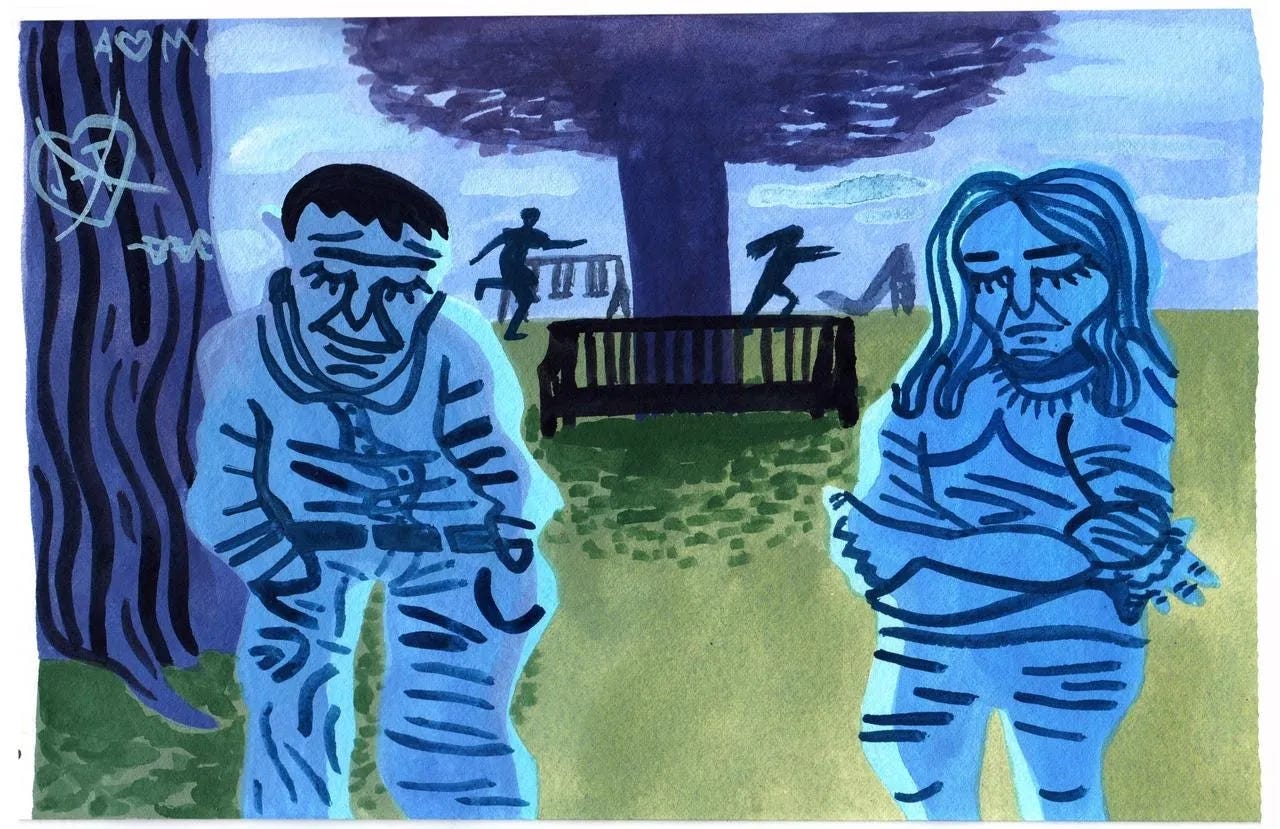In This Grief Tale, the Couple Does the Impossible
Reeling from the loss of their 7-year-old, Jill and Matt decide to confront “the afterdeath” head on.
For our next Creative Nonfiction Classic, we chose this powerful and emotionally resonant piece by Jill Deasy, originally published as “The Afterdeath” in CNF’s 73rd issue. This piece won the Creative Nonfiction Essay Contest in 2019 and earned a spot on the Best American Essays Notable list.
It was the middle of March 2007, a month after my 7-year-old son had died at home from a bacterial infection we’d initially thought was just the flu. I was sitting on the living room couch, facing the fireplace and the charred logs from the night before. My husband, Matt, had left to drive our 4- and 6-year-old sons to school. Outside, gray clouds stretched to the horizon. Maybe it would rain later. There was certainly no chance of sun.
My friend Rose sat next to me, our feet resting on the coffee table. As we talked, the stereo played a mix of songs that moaned in harmony with my mood: Ray LaMontagne asking, “Will I always feel this way” in a tone that suggested the empty feeling would last forever. I clung to the sounds of melancholy because I wanted assurance that I wasn’t greedy in my continued estrangement from a functioning life. I hated the pain of grief, but I needed it. Without grief, I might return to who I used to be: happy and unhappy but smiling nonetheless; guilty and offended but apologizing either way; ambivalent or desiring but always agreeing.
When I look back at myself, I can still feel the leaden weight of questions that sank me deeper into the couch. If one finds value in sad songs, is there value in a sad life? What about a sad woman?
Rose grabbed a stuffed pillow that was slumped against the armrest of the couch and hugged it on her lap. Then she pointed to the stone mantle above the fireplace. Propped on top were new pictures of Tommy and Ray. She asked when I put them there. I told her it was Matt. He was worried that with all the attention going to Luke, our two younger sons were feeling neglected. I shook my head as if the idea was preposterous. But how would I have known how Tommy and Ray felt about the burst of framed photographs of their 7-year-old brother that now stood on the end tables, the shelf in the dining room and on the desk in the kitchen? I didn’t question the prominence of Luke’s image around the house because it was the only way we would ever see him anymore. The photos Matt had placed felt like a reprimand: Instead of providing comfort, I was contributing to the loss.
From the couch, I could see Matt step into the kitchen from the garage. Setting the keys on the counter, he glanced at the two of us, his expression weary. He walked around the stove, poured a cup of coffee and then, from the periphery of the living room, told me he was going to work.
“Why?” I asked. He hadn’t worked in four weeks, and I didn’t expect him to return for a while.
“To get away for a little,” he said, heading back into the kitchen. I loosened myself from the couch and followed so we could talk privately. He brushed some crumbs from the counter into the sink and stared at the drain for a moment, flipping the garbage disposal switch on and off before he turned to face me. His dark hair was longer than it had ever been, a few waves touching the tops of his ears. I liked how the disheveled look accompanied these heavy days and made him look less polished and precise, like someone who didn’t care as much about going to an office.
I didn’t understand what he needed to get away from. Out of earshot from Rose, he answered that he felt confined, like the house was closing in on him. “I’m hearing the same stories over and over: the morning Luke died, what we should have done differently, how you could have known better, how you’re feeling, how I’m feeling. It’s OK,” he said, “but I need to be in my own space, someplace where I can control my surroundings.” He hugged me stiffly. “I’ll be gone for a few hours,” he said, “and I’ll still pick up the kids from school.”
When the door to the garage closed, I placed my hand over my throat. I didn’t feel angry that he was leaving, just insufficient. I recalled dismal rumors on the survival rates of marriages after the death of a child. The thought of our separation was both outrageous and perfectly logical.



